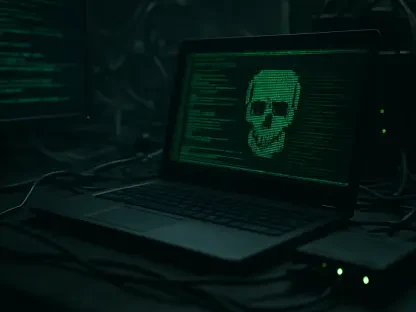In the world of cybersecurity, few can claim as much insight into the nuances of networking and next-gen solutions as Matilda Bailey. With a robust background in cellular and wireless technologies, Matilda brings a keen eye for spotting trends and a deep understanding of current threats in the ever-evolving cyber landscape. Today, we delve into the persistent menace of Gamaredon, an infamous hacking group with a particular focus on their relentless assault against Ukraine.
Can you tell us more about Gamaredon and its origins as a hacking group?
Gamaredon is a hacking group that has been operating for over a decade, primarily targeting Ukraine. Their origins can be traced back to the time when some of their members were actually part of Ukraine’s own security services. However, after the annexation of Crimea by Russia in 2014, these individuals switched allegiances and began working for the FSB, Russia’s Federal Security Service. This group is particularly notable for their relentless, espionage-focused breaches.
How does Gamaredon’s approach differ from other Russian state-aligned hacking groups like Sandworm and Turla?
Unlike the more sophisticated and high-profile operations of Sandworm and Turla, Gamaredon employs relatively simple and repetitive intrusion methods. While Sandworm is infamous for causing blackouts and releasing self-replicating malware, and Turla for hijacking satellite internet connections, Gamaredon focuses on volume and persistence. Their strategy hinges on constant, overwhelming attempts to breach networks using basic techniques like spearphishing and USB malware.
What makes Gamaredon a significant threat to Ukraine compared to other hacking groups?
What sets Gamaredon apart is their sheer frequency and persistence. They target nearly every Ukrainian government and military organization, executing thousands of attacks regularly. This relentless approach means that even though their techniques are not highly sophisticated, the sheer volume of attacks ensures that at least some will breach defenses. This continuous pressure poses a significant threat to Ukraine’s cybersecurity.
What types of attacks does Gamaredon typically use to breach Ukrainian networks?
Gamaredon’s methods are surprisingly straightforward. They primarily use spearphishing attacks, sending spoofed emails with malware-laden attachments to their targets. Additionally, they deploy malicious code via infected USB drives, which spread the malware from one machine to another. These techniques have remained largely unchanged since the group’s inception.
Can you explain what spearphishing attacks are and how Gamaredon uses them?
Spearphishing involves sending targeted, deceptive emails to specific individuals or organizations. These emails often appear to come from a trusted source and contain malicious attachments or links. When the recipient opens the attachment or clicks the link, malware is installed on their system. Gamaredon relies heavily on this method, using malware-laced attachments to infiltrate networks and extract sensitive data.
How does Gamaredon’s use of USB drive malware work in spreading infections?
Gamaredon also uses malware that can be spread through USB drives. Once an infected USB drive is connected to a computer, the malware can automatically execute and spread to the machine. If the drive is subsequently used on other computers, the infection can multiply rapidly throughout a network, making this a highly effective method for spreading their malicious code.
Given that Gamaredon’s techniques are relatively simple, what makes them effective?
The simplicity and persistence of their methods are what make them effective. By constantly bombarding their targets with phishing emails and infected USB drives, they increase their chances of success significantly. Their relentless nature ensures that they remain a thorn in the side of Ukrainian cybersecurity efforts, despite the basic nature of their attacks.
How frequently does Gamaredon target Ukrainian organizations and allies in Eastern Europe?
Gamaredon’s attacks are almost constant. They target Ukrainian organizations on a daily basis, breaching networks and stealing sensitive information regularly. This relentless activity extends to Ukrainian allies in Eastern Europe, making them a pervasive and persistent threat in the region.
Who are the individuals behind Gamaredon, and what is their background?
The individuals behind Gamaredon are often former Ukrainian security personnel who defected to the FSB after the annexation of Crimea. These turncoats bring a wealth of insider knowledge and expertise, which they now use against their former countrymen. Their switch to the FSB reflects a betrayal of their original loyalties and oaths.
How did the Gamaredon hackers transition from Ukrainian security services to working for the FSB?
This transition occurred during the political upheaval following Ukraine’s Maidan revolution and Russia’s annexation of Crimea. Some members of Ukraine’s security services chose to defect to the FSB, driven perhaps by a combination of ideological reasons and personal gain. This allegiance shift was instrumental in forming the core of what is now known as Gamaredon.
What role does persistence play in the success of Gamaredon’s operations?
Persistence is absolutely crucial to Gamaredon’s strategy. By never letting up in their barrage of attacks, they wear down defenses and increase the likelihood of successful breaches. Their relentless efforts ensure that they are always a looming threat, constantly pressuring their targets and exploiting any opportunity that arises.
Can you provide details on the Ukrainian government’s actions against Gamaredon hackers, including sentencing in absentia?
The Ukrainian government has taken strong measures against Gamaredon. In October 2024, they went as far as sentencing two of the group’s hackers in absentia for their crimes, including treason. This move underscores the severity of the threat posed by these defectors and the lengths to which Ukraine is willing to go to combat them.
What kind of complaints have Gamaredon’s hackers made about their working conditions?
Intercepted communications have revealed that Gamaredon’s hackers are not satisfied with their working conditions. They often complain about low pay and lack of recognition for their efforts. These grievances highlight the tough reality of their situation, where the rewards they expected may not have materialized.
What motivations might drive ex-Ukrainian security personnel to join Gamaredon?
The motivations for joining Gamaredon likely vary. Some may be driven by ideological alignment with Russia, while others might be influenced by promises of financial gain or personal advancement. The upheaval of the Crimean annexation and a sense of betrayal or disenchantment with their former roles could also play a part.
How have cybersecurity firms like ESET been tracking and mitigating Gamaredon’s threats?
Cybersecurity firms like ESET have been crucial in tracking Gamaredon’s activities. By closely monitoring their attack patterns and methodologies, firms like ESET can develop defenses and countermeasures to address the threat. These efforts are vital in mitigating the impact of Gamaredon’s relentless attacks.
How important is volume in Gamaredon’s hacking strategy, according to experts?
Volume is a key element in Gamaredon’s strategy. By overwhelming their targets with an endless stream of attacks, they increase their chances of success. This high-frequency approach ensures that they remain a consistent and pervasive threat, making it harder for defenders to fend off every attempt.
Can you discuss how Gamaredon’s attacks impact critical infrastructure in Ukraine, such as power plants and water supply systems?
Gamaredon’s attacks extend to critical infrastructure, including power plants and water supply systems. These breaches not only compromise sensitive data but can also disrupt essential services, causing significant harm and instability. Such attacks underscore the broad and dangerous impact of Gamaredon’s operations.
How has the ongoing war with Russia influenced Gamaredon’s activities?
The ongoing conflict between Ukraine and Russia has undoubtedly intensified Gamaredon’s activities. The geopolitical tensions provide both motivation and cover for their operations, with the group likely receiving backing and directives from the Russian state to support their espionage and sabotage efforts.
What measures can be taken to defend against Gamaredon’s relentless phishing and USB malware attacks?
Defending against Gamaredon requires a robust and multi-layered approach. This includes strong email filtering systems to block spearphishing attempts, comprehensive cybersecurity training for employees to recognize and avoid phishing scams, and strict controls on USB device usage. Regularly updating and patching systems also help mitigate vulnerabilities that might be exploited.
How could international cooperation aid in countering the threat posed by Gamaredon?
International cooperation is vital in the fight against groups like Gamaredon. By sharing intelligence, strategies, and resources, countries can better anticipate and counteract these persistent threats. Joint efforts in cybersecurity and diplomatic pressure can help disrupt and dismantle the operations of such malicious actors effectively.
Do you have any advice for our readers?
Stay vigilant and informed in your daily digital interactions. Recognize the importance of cybersecurity in safeguarding your personal and professional information. Investing in good security practices and staying aware of the latest threats can make a significant difference in protecting against persistent cyber threats like Gamaredon.









